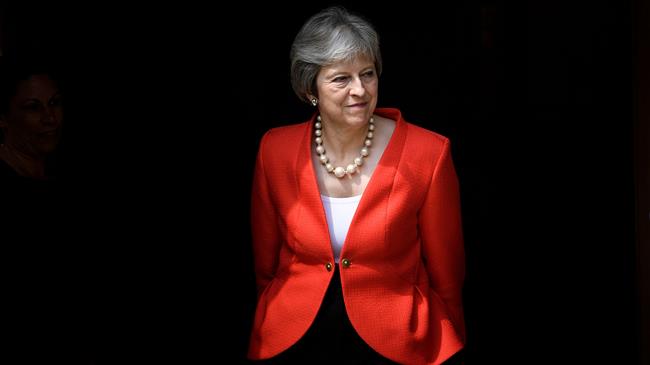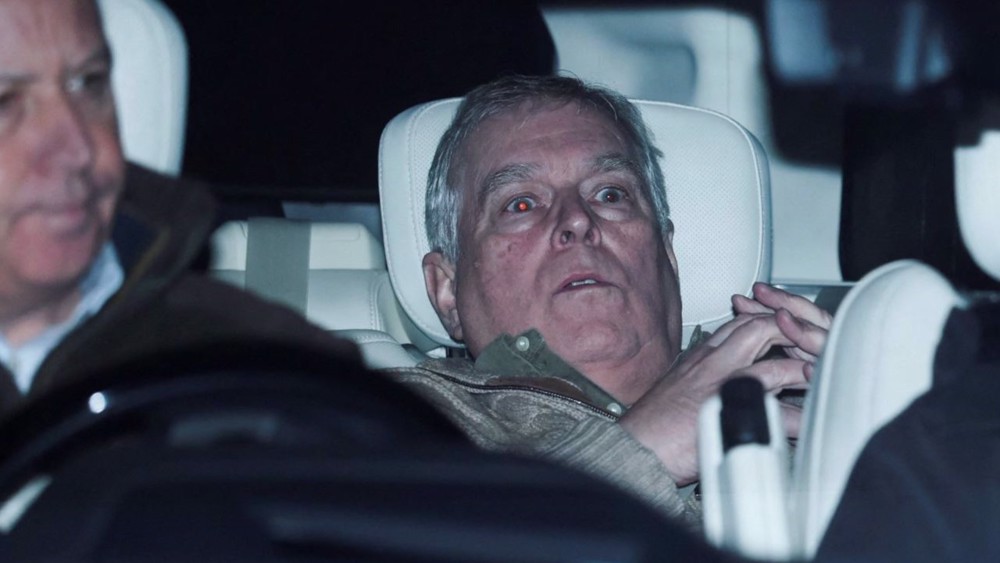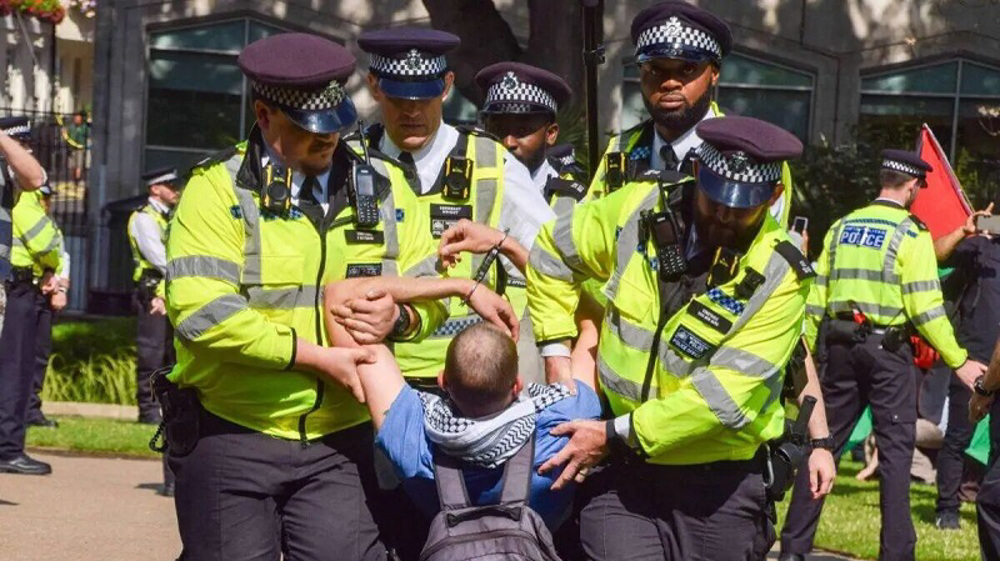Britain’s May narrowly avoids customs union vote defeat
British Prime Minister Theresa May has narrowly avoided a defeat in parliament over post-Brexit customs arrangements, as she struggles to drum up support and unify her divided party around her strategy for separation from the European Union (EU).
May won approval from the parliament by a margin of just six votes with 307-301 on Tuesday, surviving an attempt by pro-EU conservative lawmakers to change her post-Brexit trade strategy and keep London in a customs union with Brussels if a trade deal is not agreed by January 2019.
The rejected amendment to the trade bill said it should be the objective of the government to establish a frictionless free trade area for goods between Britain and the 28-member bloc after Brexit.
UK Trade Minister Liam Fox hailed May’s victory at the parliament and said the government's future trade bill was "an important bill providing continuity and stability."
"It will be the confident first step that the UK takes in establishing itself as an independent trading nation," he added.
The British government, however, lost a vote by 305-301 on a post-Brexit trade bill on medicines.
London will need an agreement that allows Britain to have continued participation in the European medicines regulatory framework.
The UK is due to leave the EU at the end of March 2019, but the two sides have yet to agree how their final trading relationship will work.
British Foreign Secretary Boris Johnson and the Brexit Secretary David Davis stepped down last week over May's plan for Brexit, which include remaining closely aligned to EU rules on manufactured goods.
In Britain’s 2016 referendum, 52 percent, or 17.4 million people, voted to leave the EU while 48 percent, or 16 million, voted to stay.
May insists Britain will leave the EU as planned next March and there will be no rerun of the Brexit referendum.
Brexit campaign group fined for breaching spending laws
In a separate report on Tuesday, the official Brexit campaign group "Vote Leave" was fined £61,000 and referred to the police after an Electoral Commission probe found the group had breached major electoral laws during the UK’s Brexit referendum campaign in 2016.
Under the referendum rules, the two major campaign groups were allowed to spend a maximum of £7 million while smaller groups could spend just £10,000. All groups were also required to remain independent from one another and could not share resources.
But the watchdog investigation into Vote Leave, which was fronted by senior British politicians including Boris Johnson, and Vote BeLeave, one of several smaller unofficial campaign groups, found the two were working together. The investigation also found that Vote Leave had found ways to collaborate with Vote BeLeave and avoid spending limitations. Both groups failed to declare any of this information at the time.
Vote Leave was found to have overspent by £449,000, a serious breach of the law. The founder of BeLeave, Darren Grimes, was fined £20,000 and reported to the police, along with Vote Leave official David Halsall.
Bob Posner from the Electoral Commission said, "We found substantial evidence that the two groups worked to a common plan, did not declare their joint working and did not adhere to the legal spending limits. These are serious breaches of the laws put in place by Parliament to ensure fairness and transparency at elections and referendums."
Vote Leave responded by disputing the findings, saying that a number of false accusations and incorrect assertions had been made that were wholly inaccurate and did not stand up to scrutiny.

Project fear
Brexit campaign groups have also been heavily criticized for their conduct during the referendum, with some high-profile campaigners having been accused of basing their arguments to leave the European Union around anti-immigrant rhetoric which created an atmosphere of fear among the British public.
Other key pro-Brexit speakers argued that Turkey and four Eastern European countries could join the EU as soon as 2020, and that their accession could lead to 5.2 million extra people moving to the UK by 2030.
Britain's Environment Secretary Michael Gove, a key campaigner for Vote Leave, admitted that the official Leave campaign should not have stoked fears about immigrants during the Brexit referendum, saying that if it had been left to him, the Leave campaign “would have [had] a slightly different feel.”

However, in June 2016, only a couple of weeks before the final vote, Gove warned that if Turkey were ever to join the EU it could create a risk to national security.
“With the terrorism threat that we face only growing, it is hard to see how it could possibly be in our security interests to open visa-free travel to 77 million Turkish citizens and to create a border-free zone from Iraq, Iran and Syria to the English Channel,” Gove said.
Past fines
A separate Brexit campaign, Leave.EU was fined £70,000 last March for failing to declare at least £77,380 it had spent on referendum campaigning.
Leave.EU chief executive Liz Bilney was referred to the police following the commission's investigation. Leave.EU co-founder Arron Banks called it a "politically motivated attack" and said he would take the watchdog to court.
Leave.EU, which was fronted by then-UKIP leader Nigel Farage, was only allowed to spend £700,000 in the run-up to the referendum, after losing out to Vote Leave in the battle to be designated the official Leave campaign.

Vote Leave has complained that the investigations into the pro-Brexit group are “politically motivated” and that similar complaints have been flagged up against the Remain campaign groups which have not be taken as seriously.
One senior Remain group, Britain Stronger in Europe, was also fined £1,250 in December 2017 for not providing invoices and for declaring some spending in aggregate rather than individual payments.
North Korea’s Kim re-elected Workers’ Party general secretary
Iran, Oman consult on arrangements for next round of nuclear talks
VIDEO | Protests held in Washington as AIPAC holds annual meeting for 1st time since 2020
VIDEO | Press TV's news headlines
Iran sees 40% surge in scientific Olympiad participation
Putin: Developing Russia's nuclear forces 'absolute priority'
Hamas condemns Netanyahu’s proposal for new regional alliance
Huckabee mocks Arab League's condemnation of his biblical territorial remarks











 This makes it easy to access the Press TV website
This makes it easy to access the Press TV website